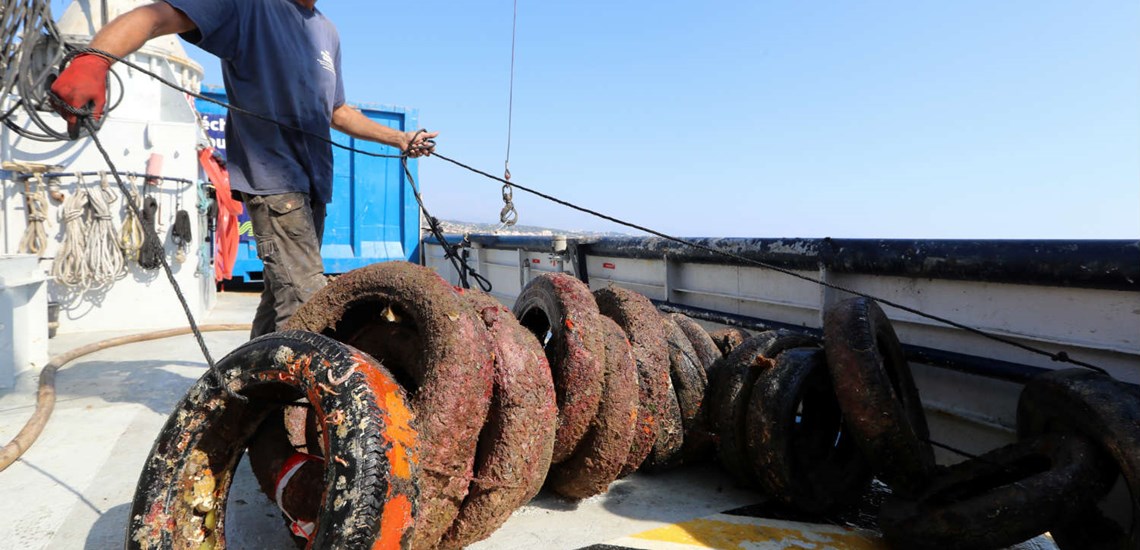It was a popular idea in the 80s, to create tyre reefs that could assist with the prevention of coastal erosion and create sites for sealife to develop. It was a controversial idea at its time, some likening it to simply dumping tyres in the sea and those against the projects claimed that the tyres would leach toxins.
Car Tyre Reef Removed in France
At the time Dr. Ken Collins of the University of Portsmouth carried out extensive testing in Poole Harbour, the results he achieved suggested that there were no issues with leachates in salt water. At the same time similar research in the USA showed that there were indeed leachate issues.
Now, after a prolonged perion of use French authorities have started removing 25,000 tyres from an experimental reef between Cannes and Antibes.
“We hoped (back in the 1980s) that we could restore aquatic life there, but it didn’t work,” the deputy mayor of Antibes, Eric Duplay told AFP. “It turns out that the tyre reef was not a prolific place for biomass.”
Denis Genovese, the head of an association of local fishermen, confirmed that most Mediterranean lifeforms had shunned the idea of living inside mad-made products manufactured out of rubber, resins, oil and other chemicals.
Sedentary creatures such as the local scorpion fish didn’t use them, Genovese said, while “grouper fish, conger eels and sea bream swim around them, but no species really got used to it”.
Worse, a study in 2005 by researchers at the University of Nice showed that the tyres were leaking toxic chemicals into the environment, including heavy metals, which are a threat to human life.
Authorities were also worried that the tyres could degrade further, nearly 40 years after they sank to the seabed, and break up into smaller pieces which would be a risk for nearby seagrass meadows.
Around 10,000 are set to be lifted by the divers and boat crew over the next few weeks, with the remaining 12,500 extracted in the second quarter of 2019.
The tyres will be sent to the nearby city of Nice and then to recycling centres where they will be broken up into granules that can be used in construction projects.
A million euros has been provided by the French state to finance the French clean-up, while French tyre company Michelin has contributed 200,000 euros.




















